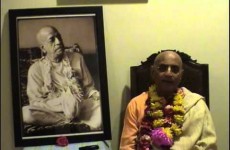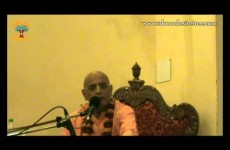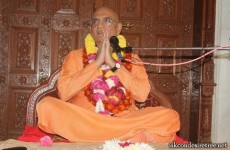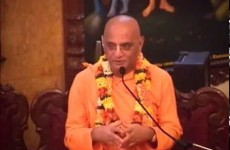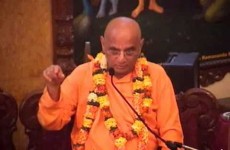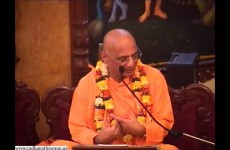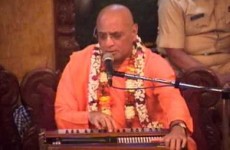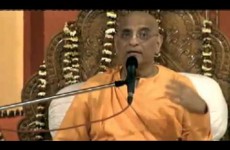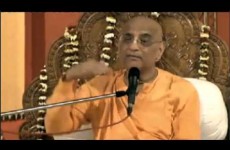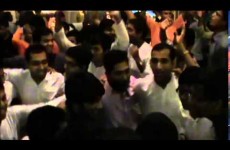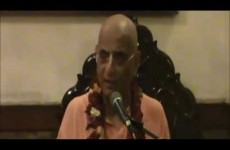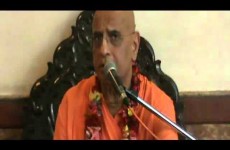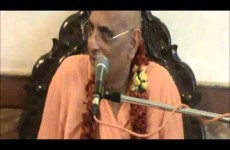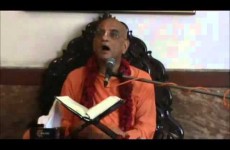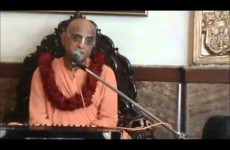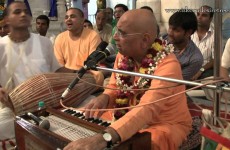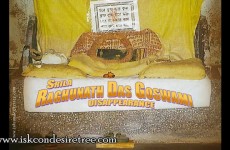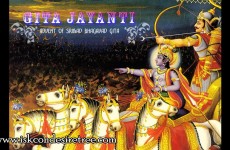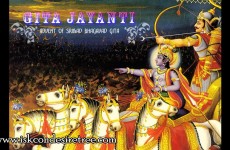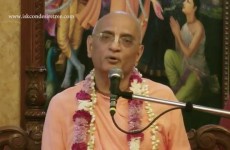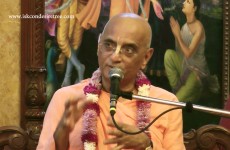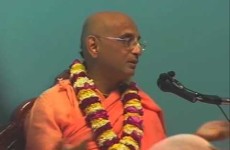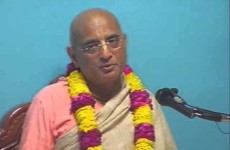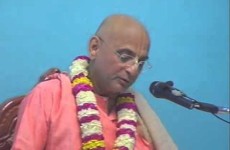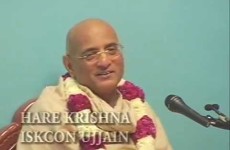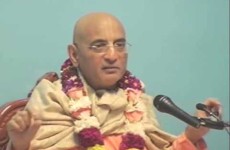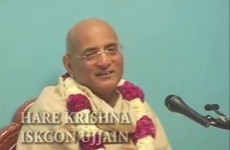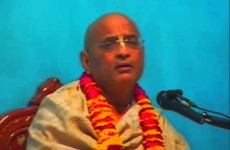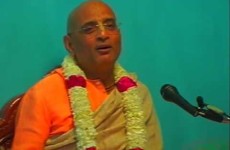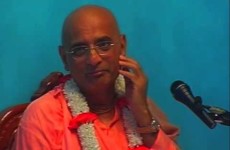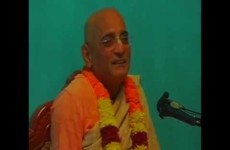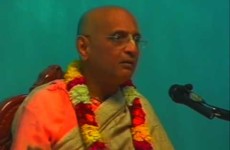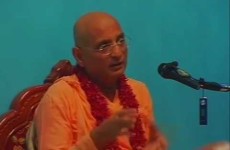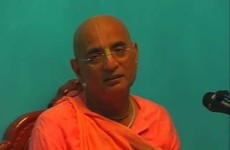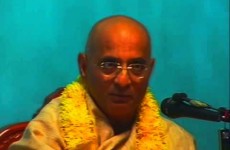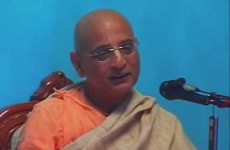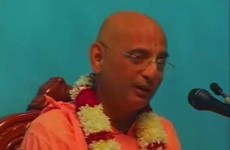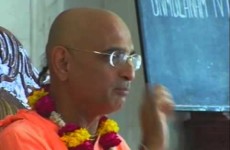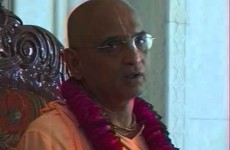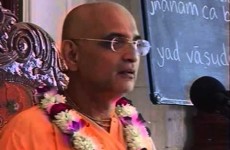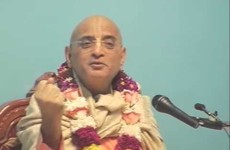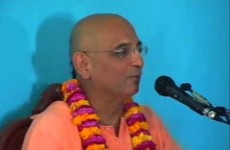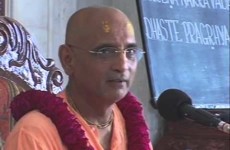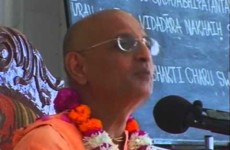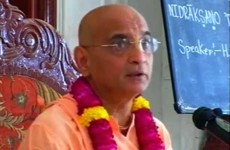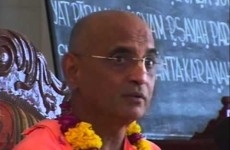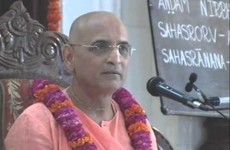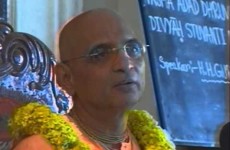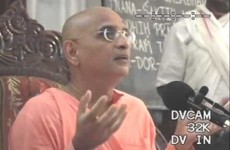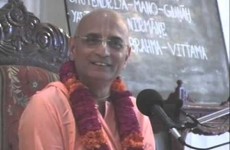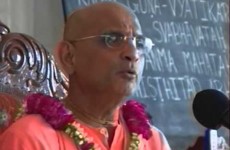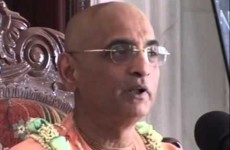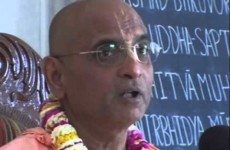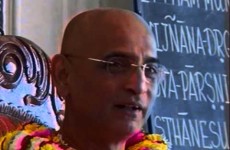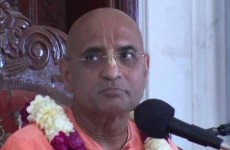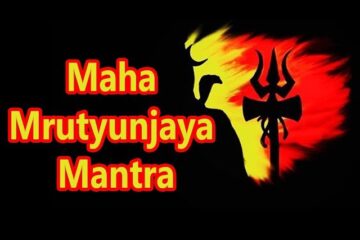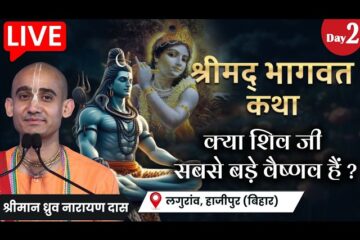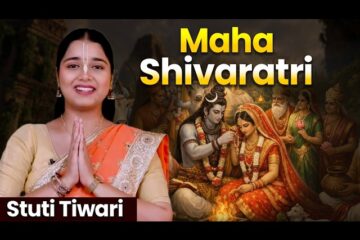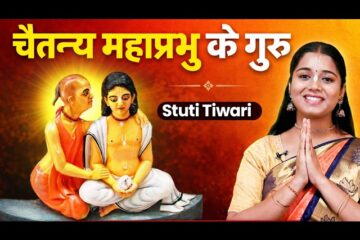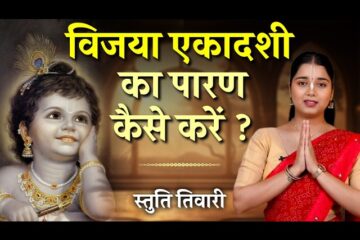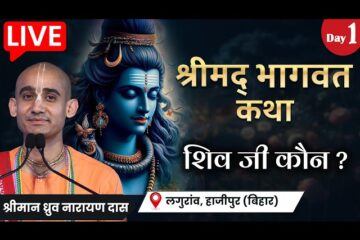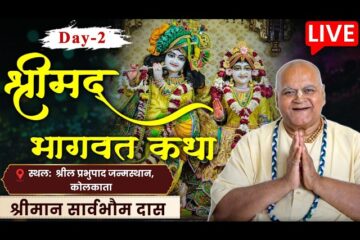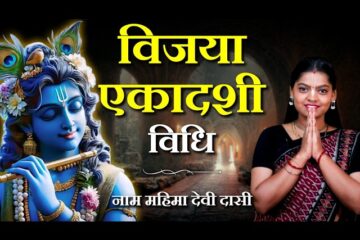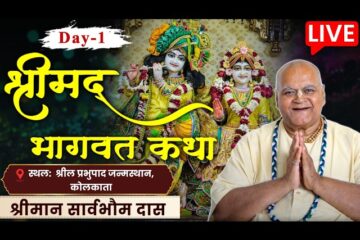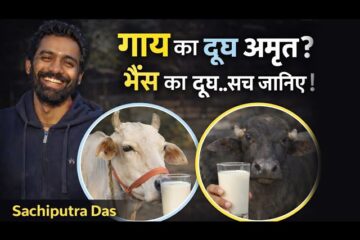Srimad Bhagavatam Canto-02, Chapter-09, Text-45
naradah praha munaye
sarasvatyas tate nrpa
dhyayate brahma paramam
vyasayamita-tejase
Translation by His Divine Grace A. C. Bhaktivedanta Swami Srila Prabhupada:
In succession, O King, the great sage Narada instructed Srimad-Bhagavatam unto the unlimitedly powerful Vyasadeva, who meditated in devotional service upon the Supreme Personality of Godhead, the Absolute Truth, on the bank of the river Sarasvati.
Purport by His Divine Grace A. C. Bhaktivedanta Swami Srila Prabhupada:
In the First Canto of Srimad-Bhagavatam, Fifth Chapter, verse 13, Narada instructed the great sage Vyasadeva as follows:
atho maha-bhaga bhavan amogha-drk
suci-sravah satya-rato dhrta-vratah
urukramasyakhila-bandha-muktaye
samadhinanusmara tad vicestitam
“O greatly fortunate, pious philosopher, your name and fame are universal, and you are fixed in the Absolute Truth with spotless character and infallible vision. I ask you to meditate upon the activities of the Personality of Godhead, whose activities are unparalleled.”
So in the disciplic succession of the Brahma sampradaya, the practice of yoga meditation is not neglected. But because the devotees are bhakti-yogis, they do not undertake the trouble to meditate upon the impersonal Brahman; as indicated here, they meditate on brahma paramam, or the Supreme Brahman. Brahman realization begins from the impersonal effulgence, but by further progress of such meditation, manifestation of the Supreme Soul, Paramatma realization, takes place. And progressing further, realization of the Supreme Personality of Godhead is fixed. Sri Narada Muni, as the spiritual master of Vyasadeva, knew very well the position of Vyasadeva, and thus he certified the qualities of Srila Vyasadeva as fixed in the Absolute Truth with great vow, etc. Narada advised meditation upon the transcendental activities of the Lord. Impersonal Brahman has no activities, but the Personality of Godhead has many activities, and all such activities are transcendental, without any tinge of material quality. If the activities of the Supreme Brahman were material activities, then Narada would not have advised Vyasadeva to meditate upon them. And the param brahma is Lord Sri Krsna, as confirmed in the Bhagavad-gita. In the Tenth Chapter of the Bhagavad-gita, when Arjuna realized the factual position of Lord Krsna, he addressed Lord Krsna in the following words:
param brahma param dhama
pavitram paramam bhavan
purusam sasvatam divyam
adi-devam ajam vibhum
ahus tvam rsayah sarve
devarsir naradas tatha
asito devalo vyasah
svayam caiva bravisi me
Arjuna summarized the purpose of the Bhagavad-gita by his realization of Lord Sri Krsna and thus said, “My dear Personality of Godhead, You are the Supreme Absolute Truth, the Original Person in the eternal form of bliss and knowledge, and this is confirmed by Narada, Asita, Devala and Vyasadeva, and, above all, Your personal self has also confirmed it.” (Bg. 10.12-13)
When Vyasadeva fixed his mind in meditation, he did it in bhakti-yoga trance and actually saw the Supreme Person with maya, the illusory energy, in contraposition. As we have discussed before, the Lord’s maya, or illusion, is also a representation because maya has no existence without the Lord. Darkness is not independent of light. Without light, no one can experience the contraposition of darkness. However, this maya, or illusion, cannot overcome the Supreme Personality of Godhead, but stands apart from Him (apasrayam).
Therefore, perfection of meditation is realization of the Personality of Godhead along with His transcendental activities. Meditation on the impersonal Brahman is a troublesome business for the meditator, as confirmed in the Bhagavad-gita (12.5): kleso ’dhikataras tesam avyaktasakta-cetasam.
[To know more on this verse, visit – http://www.srimadbhagavatamclass.com/srimad-bhagavatam-canto-02-chapter-09-text-45/]











